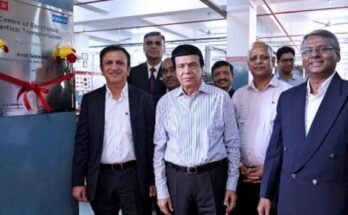Consultancy firm Accenture will commit $200 million (around R2.5 billion) over the next three years to equip disadvantaged people worldwide, including SA, with skills for work in the digital age.
The money will go towards helping support its various programmes already in place, including: Skills to Succeed, Tech4Good, Accenture Development Partnerships and related initiatives.
Accenture’s ‘Skills to Succeed’ programme has been running in SA since 2015. It aims to give people the right skills needed to gain employment in the digital industry, or start their own company.
The firm says, since 2015, thousands of South Africans have been trained in this programme, and the vast majority have gained employment in digital, software development and business process services.
One ‘Skills to Succeed’ programme in the country is CE3 in rural KwaZulu-Natal, a connectivity, electricity and education for entrepreneurship programme, which saw the launch of solar-powered micro-grids run and cared for by local famers.
Some of the money pledged will go towards further supporting CE3 and similar programmes around the country.
Accenture’s Skills to Succeed initiatives have equipped more than 2.2 million people with the skills to get a job or build a business since 2010. The new money that has been made available will allow the company to increase that number to three million or more by 2020.
“As a technology leader, we have an obligation to apply new scalable technology solutions to help solve complex societal challenges,” said Pierre Nanterme, Accenture’s chairman and CEO.
“Our investments will continue to empower Accenture to produce socially minded partnerships and programmes that will have a profound impact on the lives of millions of people throughout the world, now and for the future.”
An example of Accenture’s Skills to Succeed programme in the rest of the world is a platform developed in the US that uses artificial intelligence (AI) to connect young entrepreneurs from under-represented communities with the resources, skills, training and mentoring needed to grow their business.
In India, Accenture’s Tech4Good project uses AI and augmented reality, to help disadvantaged people improve their financial literacy.
“The opportunity to improve lives requires collaboration across business, government and non-governmental organisations,” says Nanterme.
“As leaders weigh new technologies and applications, we all must ask ourselves: Does this benefit the next generation? If the answer is yes, it’s the right thing to do.”
There have been similar initiatives by other large local and international companies, including Amazon Web Services, BCX and Google.
Last week, Amazon Web Services (AWS) said it was calling female-headed small and medium enterprises in need of cloud computing training, with the selected 30 awarded the ability to partake in the six-month AWS CloudStart programme.
In November 2017, BCX announced it would invest R100 million to grow scarce digital skills in ICT infrastructure and software programming alongside cyber security, fintech and artificial intelligence over three years in partnership with the Cape Innovation and Technology Initiative.
Last year, Google trained a million young people in digital skills across Africa and pledged to train another million this year, to help close the digital gap in Africa, improve employability and encourage entrepreneurship among young people.
Note: News shared for public awareness with reference from the information provided at online news portals.



